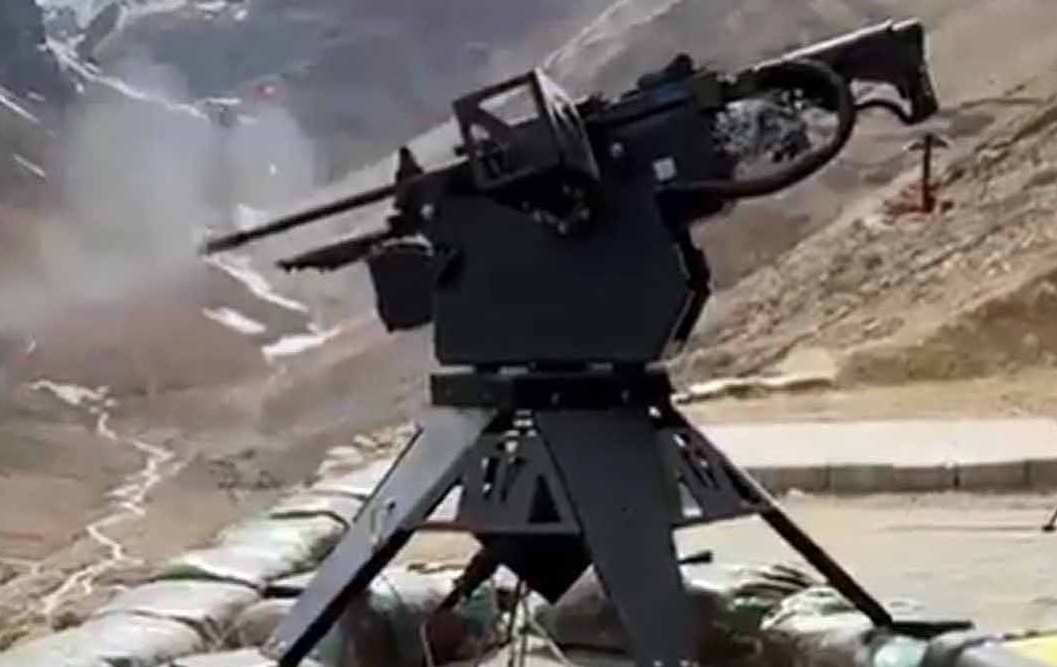Russia Warns Germany Over Taurus Missile Support, Calls It ‘Direct Participation’ in Ukraine War

Russia has issued a stern warning to Germany, saying that any Ukrainian attack using German-supplied Taurus missiles would be viewed as Germany entering the war as a direct participant. This sharp message came from Russia’s Foreign Ministry following comments from Friedrich Merz, Germany’s likely next chancellor, who recently showed willingness to send the long-range missiles to Ukraine — a significant shift from the cautious stance of the current government under Olaf Scholz.
Speaking on Thursday, Russian Foreign Ministry spokeswoman Maria Zakharova made it clear that Germany would face serious consequences if Taurus missiles were used against Russian infrastructure. She specifically pointed to attacks on strategic facilities like the Kerch Bridge — a vital supply line connecting Russia to Crimea — as an example that could trigger a direct response.
This is not the first time the Kremlin has raised alarms about the Taurus system. Russia has consistently criticized the West for sending long-range weapons to Ukraine, arguing they allow Kyiv to target deep within Russian territory and escalate the conflict. But Moscow’s warning to Berlin is particularly serious, framing the potential delivery of Taurus missiles as a direct act of war.
Friedrich Merz, who leads the Christian Democratic Union (CDU) and is expected to become Germany’s new chancellor soon, has clearly signaled a break from Scholz’s restrained approach. Following a devastating Russian missile strike in the Ukrainian city of Sumy, which killed at least 34 civilians and injured over 100, Merz called it “a serious war crime.” He stressed the need to help Ukraine “get ahead” in the war and said Germany must be prepared to act in coordination with its allies.
“Our European partners are already supplying cruise missiles,” Merz said in a television interview. “The British are doing it, the French are doing it, and the Americans are doing it anyway. If it’s jointly agreed, then Germany should take part.”
Merz also dismissed the idea that offering peace without strength would bring results. He argued that Russian President Vladimir Putin only understands pressure. “Putin will not respond positively to weakness and peace offers,” he said.
The Taurus missile system, jointly developed by European defense company MBDA and Sweden’s Saab, has a range of over 500 kilometers. That’s further than the UK’s Storm Shadow or the US ATACMS. These missiles are specifically designed to penetrate deep into hardened targets like bunkers and bridges — making them ideal for strikes on critical Russian logistics routes and command centers.
Ukraine has long requested these weapons to strike behind Russian lines and limit Moscow’s ability to resupply its forces. One of the key targets reportedly being considered is the Kerch Bridge — a powerful symbol of Russia’s grip on Crimea.
However, the idea of sending Taurus missiles has caused a political divide within Germany. Olaf Scholz, the outgoing chancellor, has repeatedly warned that supplying such systems could escalate the conflict into a broader European war. He has instead pushed for measured support that avoids making Germany a combatant.
Still, the political winds in Berlin are shifting. Merz, though once a hawk calling for missile deliveries as retaliation, adopted a more cautious campaign tone — possibly to secure a coalition deal with the center-left Social Democrats (SPD). While SPD co-leader Lars Klingbeil has voiced support for Ukraine, parts of his party remain uneasy about deeper involvement. Their internal vote this week on the coalition agreement could influence how far Germany goes in arming Ukraine.
Germany is under growing pressure from allies. The UK and France have already supplied long-range missiles. The US, too, has delivered powerful ATACMS systems to Kyiv. Britain has even publicly backed Berlin’s right to send Taurus missiles. But with Russia’s threats now directly tied to specific targets like critical transport infrastructure, Germany’s next steps will carry major consequences.
Caught between alliance commitments, internal political divisions, and Russia’s warnings, Berlin faces a defining choice. As Merz prepares to take charge, his decision on the Taurus missiles could reshape not only Germany’s role in the Ukraine war but also the future security landscape of Europe itself.
✍️ This article is written by the team of The Defense News.






